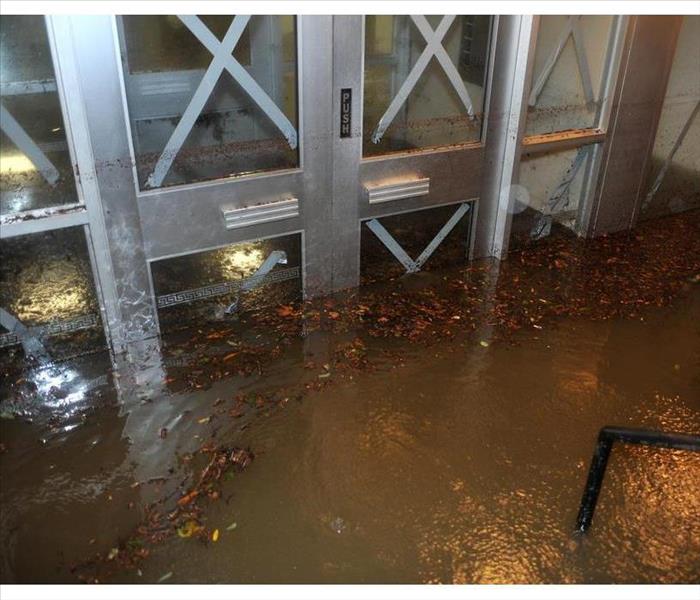How To Respond to Black Water Contamination
3/3/2020 (Permalink)
When flood and water damage affects your Big Rock, IL, property, the damages could pose significant health hazards, specifically when black water enters your buildings. Professionals have the right equipment and training to address the serious risks related to flood water that contains contaminants, including bacteria and pathogens.
The Three Types of Water Affecting Your Property
There are three types of water damage, and it's important to understand the differences. The main reasons to distinguish between the three include preventing the spread of diseases and obtaining the appropriate types of cleanup and remediation.
White water is clean and safe for consumption. If water drips from the kitchen faucet into the sink, it is generally safe to assume this water is clean. You can clean this up without worrying about contamination.
Gray water may contain household chemicals, soap residue, or bits of human skin. Some people reuse this water by pouring it in their gardens. Unfortunately, many soaps contain ingredients such as boron and chorine or high levels of phosphate. These materials are not good for plants.
Black water has been in contact with fecal matter. Raw sewage, animal feces, and other forms of waste carry bacteria and diseases. When this type of water gets into your property, avoid the risk of becoming contaminated.
Your primary focus after flooding should be maintaining the safety of everyone who enters your property. This begins by creating a safety plan before disaster strikes; be sure to include contact information for professionals with the training and equipment to handle the cleanup appropriately.
Responding to Black, or Dangerously Contaminated, Water
The risks of becoming contaminated by infectious bacteria, parasites, and viruses are high. Protect yourself and any employees or customers away from the affected areas. After contacting contaminated water damage cleanup and mitigation professionals, turn off the electricity to the building and keep people away. Unless you're sure that rising water is clean, it's best to leave the entire cleanup process to professionals.

 24/7 Emergency Service
24/7 Emergency Service
